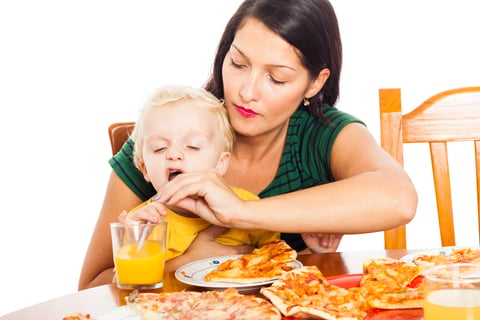
Want a smarter child? Start by feeding them the right foods.
While a child’s IQ is mostly genetically determined, as well as by the amount and type of cognitive training they receive, what they eat plays a role, too. According to a study published in the Journal of Epidemiology and Community Health, what you feed your child before age three could impact their IQ score once they go to school.
Researchers in Great Britain looked at the association between IQ and childhood diet among almost 4,000 kids between the ages of 3 and 7. They classified the diets of these kids into three types: a processed food diet, a health-conscious diet, and a traditional diet. The traditional diet focused on meat, potatoes, and some vegetables, while the health-conscious diet emphasized salads, fruits, vegetables, and healthier protein sources such as fish. The processed diet mainly consisted of convenience foods and was high in fat and sugar.
The results? Researchers found that kids who ate a processed food diet had lower IQ scores, while the children who enjoyed a health-conscious diet had higher ones. After adjusting for other factors that could affect IQ, this effect was less pronounced but still significant. They found that the greatest benefits of a diet health-conscious diet were before the child reached the age of three.
Better diet, smarter child
How does diet affect a child’s IQ? Before the age of three, a child’s brain is undergoing rapid growth. During this time, new nerve connections are laid down, and brain tissue increases in size. Although this is genetically determined to some degree, if a child is deficient in vitamins and minerals, these connections may not be laid down properly. In addition, eating processed foods may increase inflammation and free radical production in the brain, which could adversely affect IQ.
A baby’s brain development actually starts while they’re still in the womb, so a mom’s diet is also vital for healthy brain function and intelligence after birth.
The bottom line
If you want a smarter child, go light on processed foods, especially for children under the age of three. Most processed foods are devoid of the nutrients kids need for brain development, and they contain too much fat, sugar, and salt. Researchers emphasize that more studies are needed to confirm these results, but you can’t go wrong by giving a child more fruits and vegetables – and less fast foods and packaged dinners..


